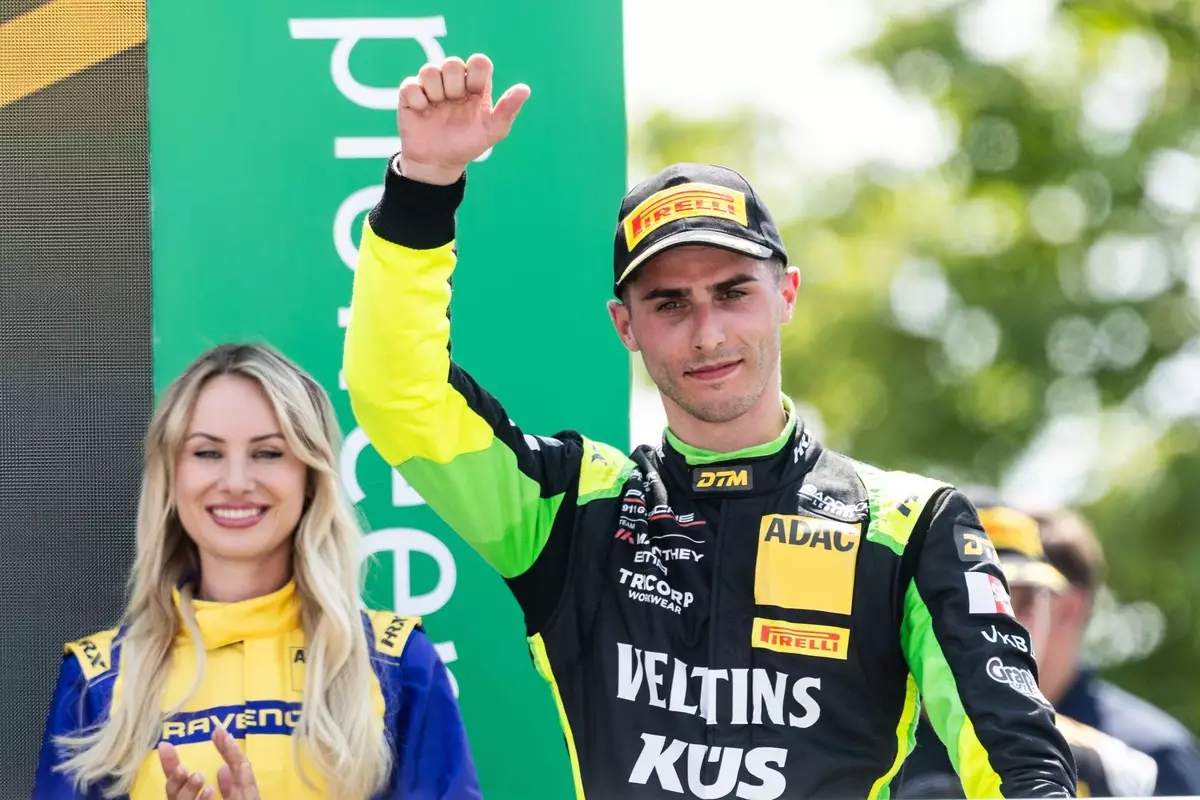In the adrenaline-charged world of touring car racing, the recent DTM event at Norisring demonstrated that success often hinges on more than raw speed; it’s about strategic mastery and mental fortitude. Thomas Preining’s victory embodies these qualities, highlighting how meticulous planning and flawless execution can overcome seemingly insurmountable odds. Starting from sixth on the grid, his climb to the top wasn’t merely a matter of luck but a testament to calculated decision-making and adaptive racing intelligence.
Preining’s triumph was facilitated by a superior pit stop strategy, which allowed him to leapfrog ahead of rivals who initially held stronger positions. His ability to seize opportunities, especially after the chaotic incidents and safety interventions, reveals an important truth: in racing, resilience and adaptability often outweigh pure pace. The race’s opening wreckage, involving several top contenders, underscored this point—momentary chaos can reset the entire battlefield, demanding mental agility from drivers and teams alike. Preining’s composure during these upheavals paid dividends, allowing him to capitalize on the chaos while others faltered.
Chaos and Control: The Unpredictable Nature of Motorsport
The opening moments of the race underscored how quickly fortunes can change. A multi-car incident at Turn 1 decimated the front-runners, showcasing the sport’s inherent volatility. Notably, high-profile drivers like Marco Wittmann and Jules Gounon faced retirement, illustrating that even seasoned professionals are vulnerable when chaos erupts. This incident brought out the red flag, effectively scraping the race’s initial order and reminding everyone that safety and timing are pivotal in motorsport.
Moreover, the subsequent safety car restart demonstrated strategic importance. Drivers had to re-evaluate their approach, with Vermeulen maintaining his lead initially, only to be overtaken by Aitken and Preining. The race’s unpredictability was compounded by mechanical setbacks, as seen with Fabio Scherer’s loose wheel and the collision between Ricardo Feller and Luca Engstler. These moments of attrition reflect that in modern racing, mechanical reliability and quick thinking are as crucial as driver skill.
Preining’s ability to remain calm and adapt under these conditions is a profound lesson in resilience. His strategic decision-making, particularly during pit stops, became the defining factor. It’s not simply about who is fastest but who can navigate the chaos most effectively. This race vividly demonstrated that mastery over unpredictable variables differentiates champions from mere contenders.
The Power of Strategy and Mental Endurance in Achieving Excellence
Preining’s race win illustrates an essential strategic principle: anticipating and leveraging opportunities. His early move from sixth to third in the initial phase of the race showcased aggressive resilience, but it was his second pit stop and a well-timed maneuver that ultimately secured victory. Outsmarting rivals like Jack Aitken, who was initially leading, proved that precision in operational decisions often outweighs raw acceleration. His team’s swift pit stop and tactical positioning allowed him to pounce at the perfect moment, turning potential setbacks into a race-winning advantage.
Meanwhile, drivers like Aitken and Vermeulen exemplified the importance of consistency and strategic patience. Vermeulen’s early lead was challenged not just by other drivers but by the race’s shifting dynamics—highlighting that maintaining dominance requires more than initial pace. The camaraderie and mutual respect evident in the competitive overtakes and strategic battles reflect the sport’s deeper narrative: that victory is as much about mental endurance as it is about speed.
Preining’s victory also underscores a broader narrative about perseverance. The race was fraught with setbacks and incidents, yet he refused to be deterred. His attitude embodied a relentless pursuit of excellence—an attribute that aspiring drivers should regard as essential. In an environment where errors and unforeseen events are ubiquitous, resilience and strategic adaptability become the true hallmarks of champions.
Looking Forward: The Implications for Future Races
This race at Norisring offers valuable insights into the evolving landscape of motorsport. It underscores the necessity for teams to refine their strategic acumen and for drivers to cultivate mental toughness. As the series prepares for its next round at the Nurburgring, teams and athletes will no doubt analyze this race to extract lessons on managing chaos and optimizing strategy under pressure.
The upcoming event stands as a reminder that success in modern racing transcends speed—it demands a blend of agility, foresight, and relentless resilience. For Thomas Preining, his victory is more than a podium finish; it is a validation of strategic integrity and mental fortitude. In a sport where margins are razor-thin, the real game is often won in the moments of uncertainty, where resilience and precision determine the ultimate victor.

